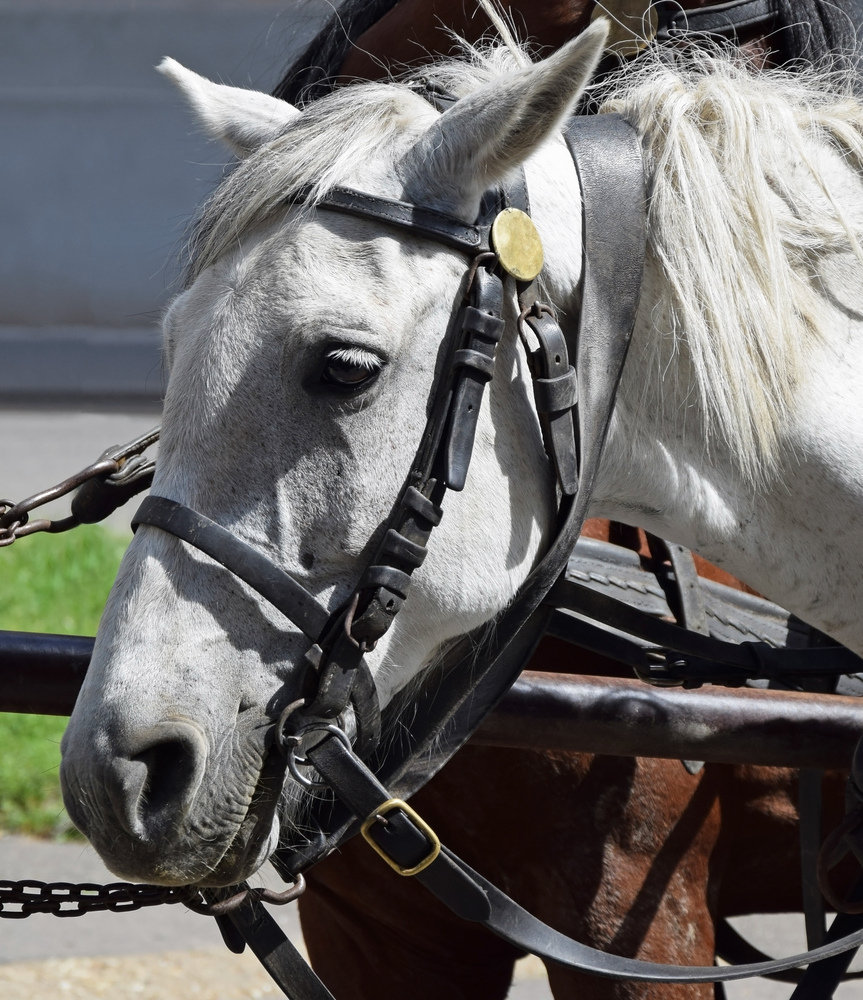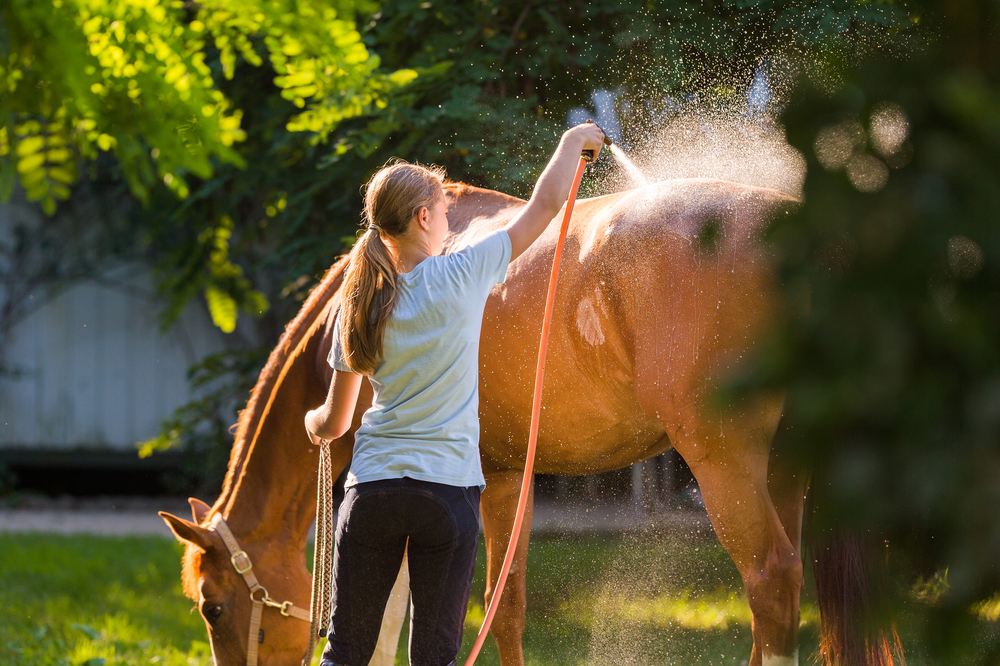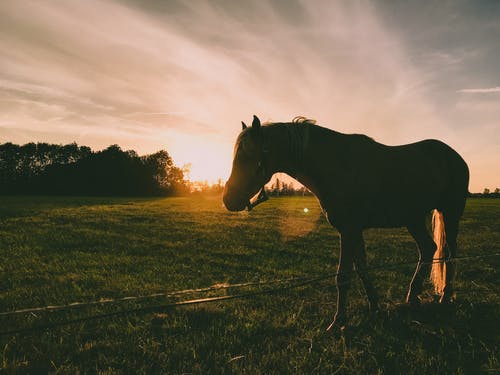As temperatures rise all over the country, your horse is at risk of overheating even moreso than normal. While horses can overheat any time of the year, it is most common for them to overheat during the blistering hot summer months, as hot and humid conditions are harder on your horse’s body. If your horse overheats, it’s important to be aware of what to do, so that you can help them recover. Here’s what you need to know about some of the warning signs of overheating, what to do if your horse overheats, and some steps you can take in order to prevent your horse from overheating.

Warning Signs Of Overheating
If your horse overheats, you need to be aware of the variety of signs warning of this, so that you can take appropriate action to resolve the issue. Some of the common signs of overheating in horses include:
- Rapid breathing. While it is normal for your horse to breathe rapidly after exerting themselves, if your horse is breathing fast without any sign of slowing down, this could indicate a problem, and you should call your vet.
- Lethargy. There’s a difference between a horse who is resting out in the pasture and one who is just standing there and doesn’t care about their surroundings. If your horse overheats, they can lack coordination, interest in food, and exhibit signs of depression.
- Increased temperature. It is also normal for horses to have an increased temperature after working out, however, if your horse overheats, their temperature will be over 102 degrees Fahrenheit, even after cooling down. If your horse’s temperature doesn’t come down after cooling them out, you should call your vet.
- No longer sweating. Horses are like humans in that they sweat in order to cool themselves down. If your horse isn’t sweating, this can be an extreme sign that they’ve overheated and are dehydrated. If your horse overheats and is no longer sweating, their body is no longer able to get rid of excess heat. This can result in heat stroke, organ failure, brain damage, and fatality.
- Muscle stiffness. If your horse seems like they are having a hard time moving and are stiff, without having suffered an injury that would make sense for them to be stiff, they are likely starting to tie up. Again, you will want to call your vet.
What To Do If Your Horse Overheats

If your horse overheats, you want to act quickly, in order to help them recover and to avoid heatstroke. Some of the things that you can do if your horse overheats include:
- Get them out of the sun. If your horse overheats, one of the first things you want to do is get them out of the sun and either into the barn or into some shade. Ideally, you want to move them somewhere with either a breeze or a fan.
- Hose them down with cool water. This does not mean ice cold water, as ice cold water could end up shocking them and causing even more issues. However, if your horse overheats, you can hose them down with cool water that you scrape off as you hose, as this will help to bring their body temperature down.
- Encourage them to drink. You may also consider adding electrolytes to the water you offer your horse. Many horses won’t drink ice water, so you should keep it cool, but not frigid. Allow your horse to have as much water as they want.
- Call your vet. One of the most important things you can do if your horse overheats is to call your vet. Even if you’re able to bring your horse’s temperature down to normal and they start to breathe regularly and get their old spirit back, you still want your vet to come out and examine them in order to ensure that they are alright, and that no complications develop.
If you are not able to get your horse to drink or bring your horse’s temperature down, this constitutes an emergency, and you will need your vet to come out right away, as your horse may need treatments such as IV fluids in order to recover from overheating.
How To Prevent Overheating

You can take measures to prevent your horse from overheating. These include:
- Not exercising them during the heat of the day.
- Ensuring that they stay hydrated and always have access to clean, cool water. An automatic waterer can help with this.
- Give them relief from the heat of the sun with a shelter or shade.
- Give them plenty of breaks when working them.
- Take longer warming them up and cooling them down.
- Condition them.
- Manage their weight so that it stays within a healthy range.
- Ensure that they have plenty of ventilation.
Bar Bar A provides automatic horse waterers that can help your horse stay hydrated and avoid overheating. To learn more about our automatic horse waterers, please don’t hesitate to contact us today.

Leave a Reply